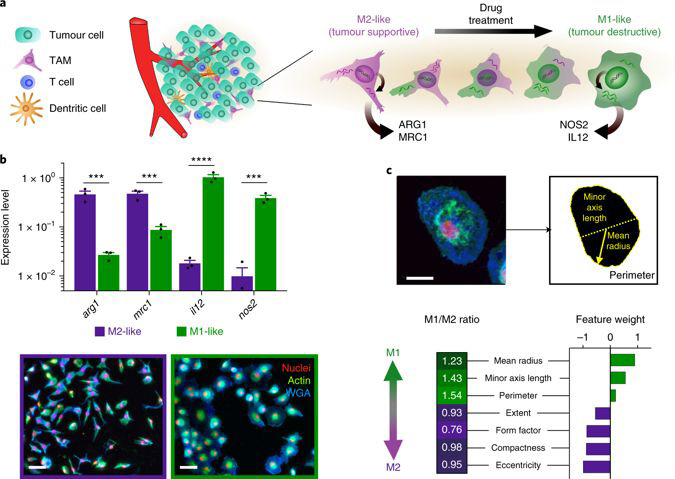New Breakthrough: Reprogramming Macrophages May Act as Sensors to Detect Cancer and Other Diseases
Endogenous biomarkers remain an indicator of early diagnosis of many diseases, but many markers lack the sensitivity and specificity to effectively guide disease control, making early diagnosis, monitor and treatment of disease progression a challenge.
In order to solve this problem, researchers from the Stanford University School of Medicine recently developed a cell-based in vivo biosensor under the leadership of Professor Sanjiv S. Gambhir of the Department of Bioengineering, Radiology, and Molecular Imaging, aiming to achieve high-sensitivity early diagnosis of tumors.
The researchers genetically engineered macrophages to combine the expression of luciferase with the activation of the arginase-1 promoter, allowing these macrophages to sense M2-type tumor-associated metabolic profiles which producing luciferase.
After successful cell construction, the researchers returned these cells to a mouse model of colorectal cancer and breast cancer, and found that these macrophages can migrate to the tumor site and activate the expression of arginase-1, which allows researchers to diagnose tumors by bioluminescence imaging and detecting the amount of luciferase in the blood.
The researchers found that, this macrophage sensor can detect tumors of 25-50 mm3 in size in the presence of inflammation by detecting luciferase in the blood, which is more sensitive than currently used clinically based diagnostic methods for cancer-related protein and nucleic acid biomarkers.
In addition, the researchers found that this macrophage sensor can effectively track the immune response in muscle and lung inflammation models, suggesting that this method can also be applied to the detection of other diseases other than cancer.
Reference
- Sanjiv S. Gambhir et al. Engineered immune cells as highly sensitive cancer diagnostics. Nature Biotechnology (2019). DOI https://doi.org/10.1038/s41587-019-0064-8


Your email address will not be published. Required fields are marked *